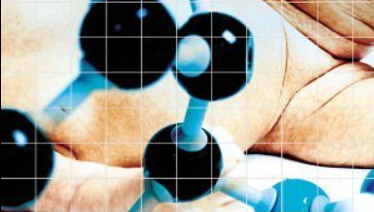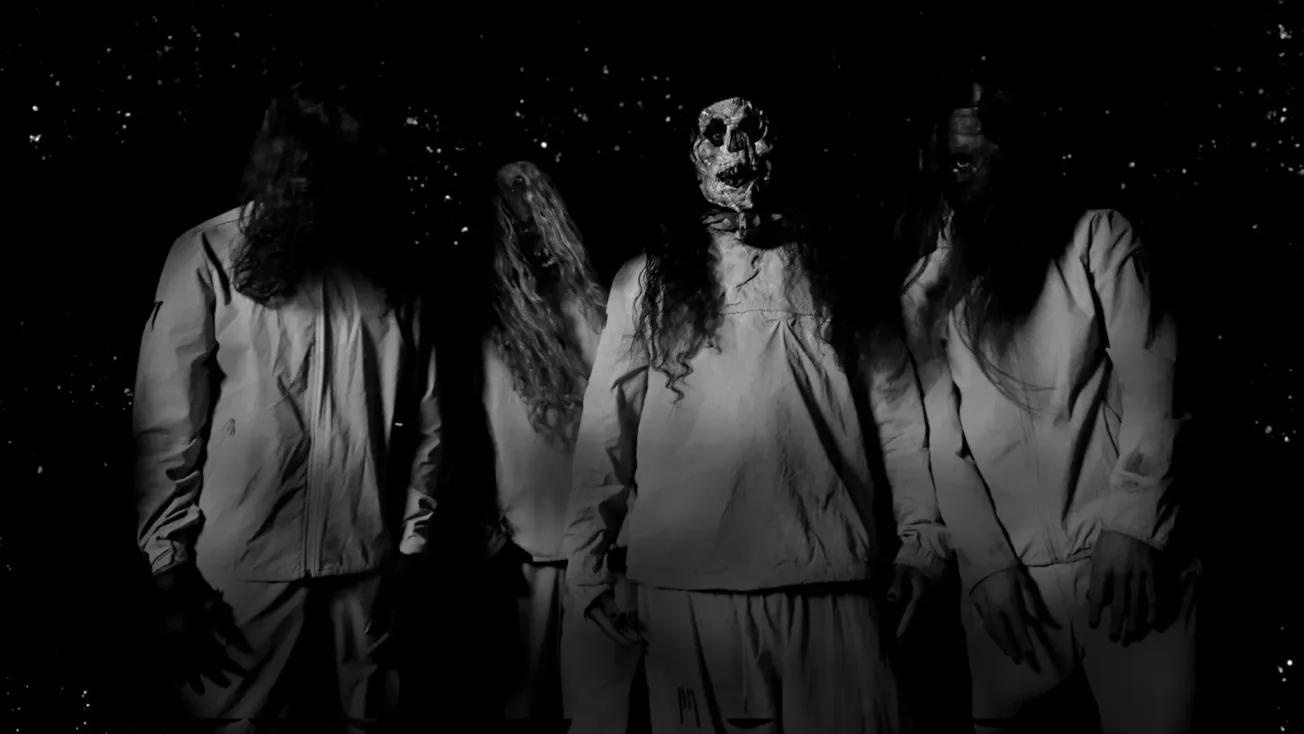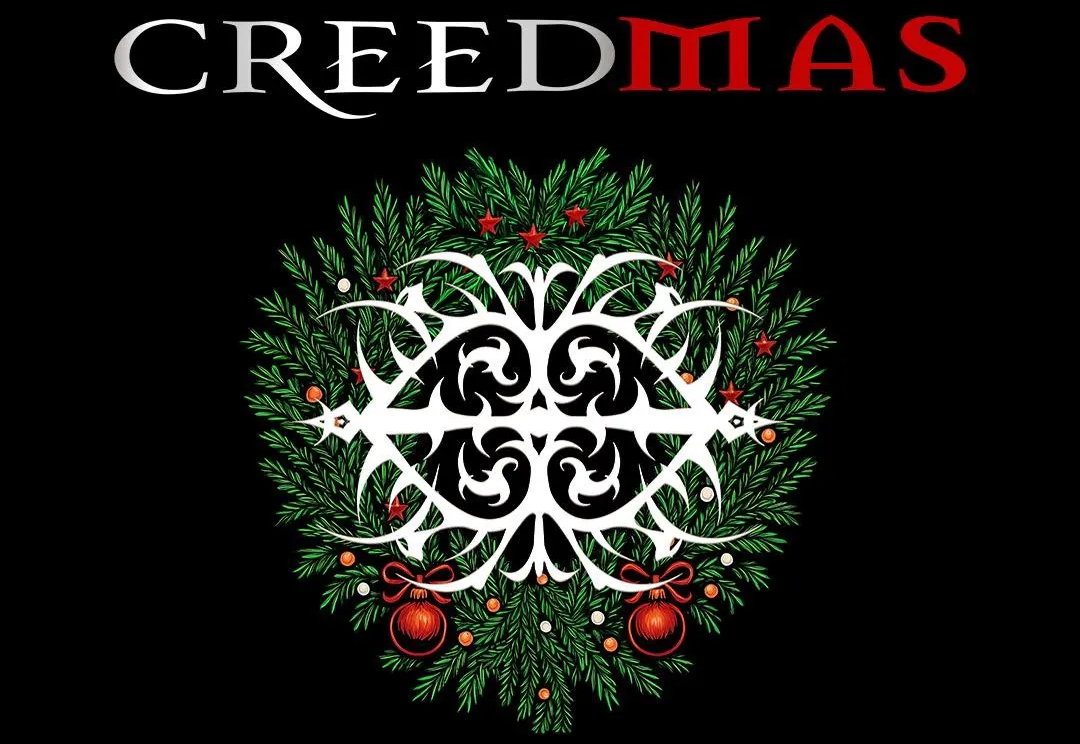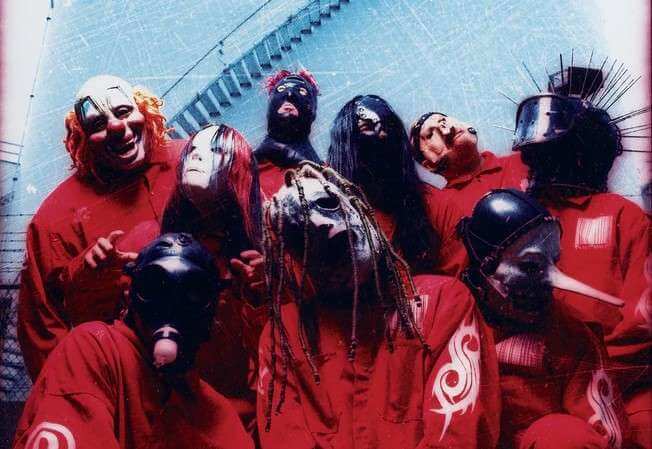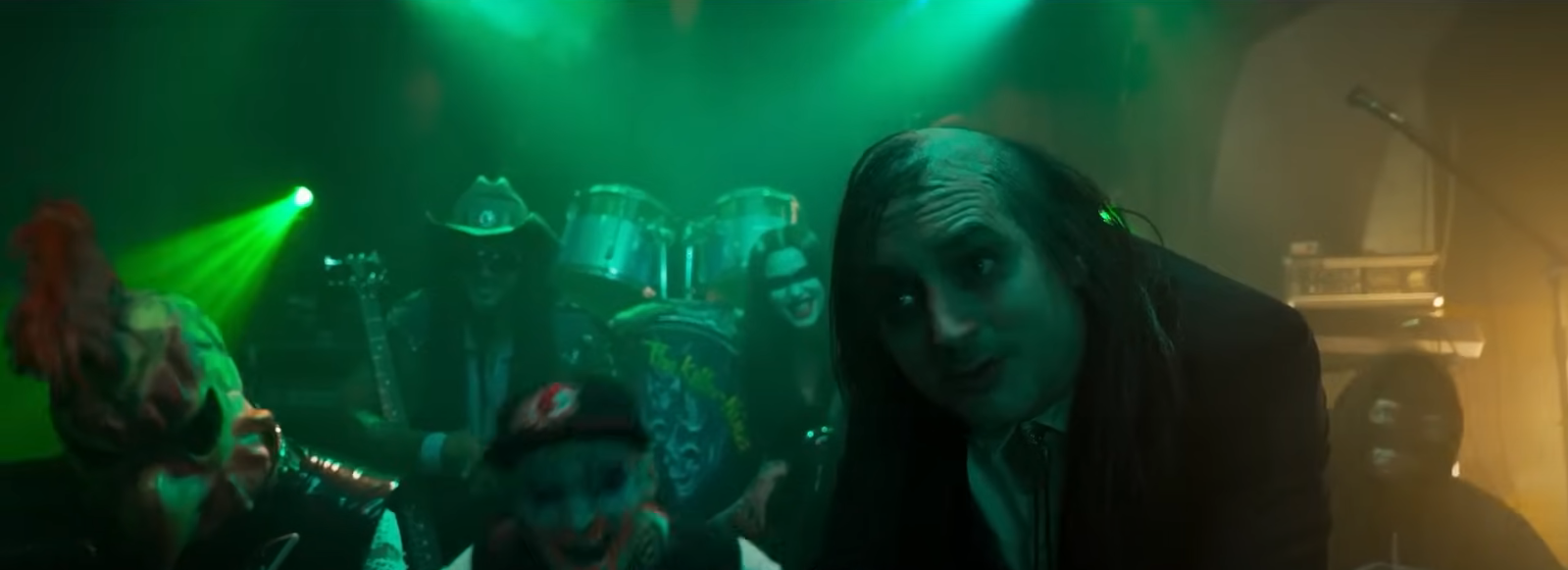Ever since the release of Deftones’ first demo tape—which, depending on who you ask is the first physical artifact of nu metal history—a debate has raged: What’s the best Deftones album? Around the Fur, their crossover breakthrough? White Pony, because Pitchfork reviewed it? Diamond Eyes, the band’s triumphant return to the throne? We here at the Nu-Metal Agenda will finally settle decades of debate, and after months of deliberation, are prepared to share the definitive discography ranking of one of nu metal’s co-founders.
13. Gore (2016)
balloonxm
Though all is not lost, Gore is a brutally banal album. The brilliant light that shines between the janky arrangements and robotic melodies burns true, surely, and results in Gore being the most unprecedented entry in Deftones' catalog. “Phantom Bride” is beautiful, but couldn’t be further away from a Deftones song. The cheesy guitar solo, festival anthem chorus–it runs saccharine and evocative. It’s a glimpse of what could’ve been, a trail off for sure, but justified when change is needed. Similarly, “Rubicon” is the closest Deftones gets to post-hardcore and I love it. But “Doomed User” is “CMND/CTRL" with worse production, energy, and songwriting. The power metal refrain, dangerously adjacent to Deafheaven’s Ordinary Corrupt Human Love, is a symptom of a deeper ailment. In tandem with Koi no Yokan-style mixing–which worked incredibly for that album four years prior – it just doesn’t fit. Though not terrible, everything about Gore reminds me of other, better instances of the same ideas. It echoes what Saturday Night Wrist afflicted the band with nearly ten years prior: strained interpersonal relationships. They flew out of the flames in 2006 with style. On Gore, it’s a gaggle of flamingos flying chaotically in random directions.
12. Deftones: Live in Hawaii (2002)
Hemotype
Recorded in 2001 for the MTV series “Music in High Places,” Deftones: Live in Hawaii brings us on a very short adventure alongside the band in Hawaii. The film consists of live performances, acoustic renditions, and of course, the gang getting up close and personal with some lava. Live in Hawaii is the only official live DVD for the band, and because of that, it’s an integral part of their discography. Unfortunately, it doesn't lack its flaws. The not-so-elegant cuts interweaving the acoustic and classic live performances of “Digital Bath” are disappointing, forcing you to plead to the heavens there's an alternate cut where the non-acoustic sets are removed entirely. The redeeming quality lies in the visual aspect; without it, the musical performances would not be worthwhile listening by themselves. The acoustic versions of “Knife Prty” as well as the unreleased “The Boy Republic” are exuberant exceptions. Abe Cunningham's acoustic setup allows for a pleasantly elevated version of both songs, and the general lightweight ambiance renews the otherwise heavy tracks. Certainly not a substitute for the originals, but if polished and recorded in the studio, they’d easily be release-worthy. Overall, despite Live in Hawaii's rank as an important release in their catalog, its flaws outshine the good.
11. B-Sides & Rarities (2005)
Yumi
B-Sides and Rarities (2005) contains some diamonds in the rough, such as “No Ordinary Love” and “Please Please Please Let Me Get What I Want.” The cover of Sade’s “No Ordinary Love” is a special treat, with softer crooning vocals and a more subdued sound. Sadly, a few good covers are not enough to carry B-Sides and Rarities higher. The originals of their songs are better than their stripped-back acoustic counterparts—especially for “Teenager - Idiot Version”—and these make up a good portion of the album. Most disappointing of the B-sides is “Black Moon,” a very, according to Chino Moreno himself, spontaneous and rushed collaboration with B Real of Cypress Hill. Given the diversity of Deftones’ numerous tracks and albums, one would expect an equal supplement to B Real’s lyrical contribution. It’s barely a Deftones song, with Chino’s only vocals being faint background whispers or screams. On other albums, Deftones successfully incorporates sampled audio in their tracks with interesting melodies, riffs, and vocals, but this album, in particular, is ranked low for a distinct lack of Deftones’ typically strong musical personality.
10. (Like) Linus (1993)
Holiday Kirk
(Like) Linus is technically a bootleg compilation of pre-Adrenaline demos useful enough to be grandfathered into official status. Without even Korn to look to yet–the oldest tracks being from 1991– (Like) Linus catches the band playing with alternative rock (“(Like) Linus”) funk metal (“Venison”) and grunge (“Hump”) while soldiering on towards a sound of their own. The paths not taken are interesting, but some of the more ill-fitting genre explorations–the 311-esque reggae of “Answers” for instance–would have proved superior to the band we got. Once we arrive at the final run of tracks taken from the band’s first Maverick recordings on Root/Nosebleed, it’s all there. The raw demos of Deftones classics like “Engine No.9” and “Teething” are just as electric here as they are on their albums proper.
9. Covers (2011)
Hemotype
Tucked between the releases of Diamond Eyes and Koi No Yokan, Covers enters Deftones' discography as their second compilation album–this time fully comprised of covers the band had recorded between 1995 and 2010. Many tracks on the album, such as “Savor” by Jawbox, had previously been released on their first compilation album B-Sides & Rarities. From Chino Moreno's well-documented new wave and 80s influences, five tracks hail from the decade, including “Ghosts” by Japan–in which Moreno sounds so much like David Sylvian, it's scary–and Duran Duran's eerie Rio standout track “The Chauffeur.” Being blessed with an airy and effervescent cover of Sade’s "No Ordinary Love," we're left with a solid collection of covers spanning genres. Although Covers is a brilliant display of Deftones' capability to replicate and transform others' songs into their own, it lacks the same influential and creative qualities as many of their original studio albums.
8. Ohms (2020)
Gabi Brown
“I’ve finally achieved…BALANCE!” A whopping four years after the indecisive and ultimately disappointing Gore, the confident delivery of this line on album opener “Genesis” hits like a gunshot. If Gore was the record where Deftones tried to reinvent the wheel, ending up with a collection of forgettable experiments, Ohms is a welcome return to everything that’s working for the band in the post-Diamond Eyes era. Stephen Carpenter has moved up to a 9-string guitar and is clearly having a blast grooving on that lowest string. In doing so, he’s sharing the same sonic territory as Sergio Vega, making the ways the two players converge and diverge over the course of the album fascinating to watch. It’s not often you get a bassist playing higher than the guitarist! The result is an incredibly solid listen with lots of memorable tracks–“Ceremony,” “Pompeji,” “The Spell of Mathematics,” and “Radiant City” are definite standouts. What holds this album back is the lack of S-tier anthems on the level of “Digital Bath” or “Change (In the House of Flies).” Nonetheless, Ohms is still an album in which Deftones trusted themselves to make good music, and that self-confidence makes for a worthwhile and rewarding listen.
7. Koi No Yokan (2012)
Yumi
During its creation, Koi No Yokan was a concerted effort by Deftones to persist as a creative force despite bassist Chi Cheng’s condition. Simultaneously, this album’s sound resembles that of Eros, the album Deftones would lay to rest with Cheng in 2013. Like Eros, this album’s title relates to love, named after the Japanese phrase which roughly translates to an anticipation of falling in love. Surface-level similarities aside, Koi No Yokan also has a similar haunting atmosphere and powerful, disembodied vocals, but falls short of what the band almost completed. This album struggles to compete against Deftones’ other better-known albums as well, though this is not to say Koi No Yokan is a bad or even mediocre album. Many people love this album for its ethereal quality, with “Rosemary” being one of Deftones’ top ten most-streamed songs on Spotify. The layered instrumentals, cohesive with the highly symbolic lyrics delivered by Chino’s beautiful vocals, contribute to the album’s alluring sound, but it’s just not for everyone. Koi No Yokan—dreamlike, metaphorical, and stirring—lacks the tangibility many seek in an album, yet appeals to many others with these same qualities, and thus lands in the center in a ranking of albums.
6. Adrenaline (1995)
Terra Eyes
Adrenaline –Deftones’ first studio album– is a release that suffers from all the things that also make it a masterpiece of a debut. The chugging riffs, strained, pitchy vocals from Chino Moreno bursting into ear-shattering screams, lyrics that gently toe the line between teenage angst and adult anger, a song where 80% of the choruses lyrics are “Suck;” for any other band with half the talent, this wouldn’t have worked. And indeed, for many people, it didn’t–at least not as well as later efforts like Around the Fur and White Pony would. Despite this, Adrenaline is also an album that heavily embraced the crossover elements of hard rock and hip-hop that would go on to shape nu-metal with tracks like “Bored” and “7 Words,” laying the groundwork for acceptance of, if not downright inspiring, later acts in the genre that would later be known as nu-metal.
5. Deftones (2003)
Paris Murrow
After the critical and commercial success of White Pony, rather than sticking to their guns, Deftones continued to evolve and experiment musically. Gone were Frank Delgado’s turntables, replaced with more traditional keyboards and synths. The album starts off strong with “Hexagram,” featuring earth-shattering vocals—arguably some of Moreno’s strongest—knocking drums, and deeply nostalgic lyrics. Some of the heaviest songs within the band’s discography lie on this album, with intense guitars laid over scratchy, screaming vocals. Despite this, other styles, such as shoegaze and particularly trip-hop, are also present. This slow, melodic approach gives an early glimpse into many of Moreno’s future musical projects. “Anniversary of an Uninteresting Event” drifts even further from the earlier heavy tracks, as it is made up of light pianos and an earnest vocal performance from Moreno. Needless to say, there is a general lack of consistency within this record. Deftones is divisive among fans and is often negatively compared to its predecessors. Although Deftones is a solid collection of the band’s experiments with sound, it isn’t as cohesive nor as groundbreaking as the albums atop this list.
4. Saturday Night Wrist (2006)
balloonfm
The haunting experiment of Saturday Night Wrist jars and evokes, ambitious to a fault. Nothing in the world sounds close to this, even still. Frankly, it’s unbelievable they pulled it off without breaking up. Saturday Night Wrist wears dissonance on its torn sleeves. Texturally, the production is unsettling. Glitches, noises, echoes, and whispers–Chino’s warped vox bend and chirp on “Xerces” and “Cherry Waves,” layered heavy for vehemence. A wall of him often erupts and obeys the melody when he’s not actively clawing at a distorted falsetto, in between the screams we know. "Beware" in particular is a monster, and debatably contains the single hardest full-band breakdown in their catalog. The creative risks they took are heavy, treading ambient psychedelic rock trip-hop territory. Bob Ezrin took over production from Terry Date, and there’s a tangible, sonic difference in mood. External factors played a big part in a turbulent situation for the band, who at that point all hated each other. Though Saturday Night Wrist is a great album, its psychological intensity isn’t for everyone. 4th place is not a slight. It’s one-of-a-kind but overshadowed, a gem in a crowd of more brilliant gems, but with a unique color. If nothing else, as the last project with Chi, Saturday Night Wrist has a shine all to its own.
3. Diamond Eyes (2010)
Joshua Cummings
Many fans will tell you there are two eras of Deftones: before and after Chi Cheng. Diamond Eyes isn’t just a rebirth for the band, It’s 20 years of hard work and passion coming together to create something truly incredible. It’s something new that doesn’t forget where it came from. “CMND/CTRL” feels like something that could have existed in their early work. “Sextape” feels majestic and takes the band into bold, new territory that still feels familiar. This album is full of ideas the band has continued to play with since its release. For that, it’s one of their most important albums. It didn’t just prove they could make music without Chi–we already knew that–it proved the band could move forward and evolve.
2. Around the Fur (1997)
Paris Murrow
Coming hot off the rough teenage angst of Adrenaline, Deftones’ sophomore release Around the Fur marked the band’s transition to a more polished sound. It’s clear from the get-go the album is a more concrete idea of what the band wanted to be, with material for them to build upon in future releases. Front to back, the album is a cohesive picture of sex and violence, romance and hatred, and death and rebirth. Carpenter and Cheng’s riffs intertwine, with Cunningham’s snare drums hammering each track into place. The album also includes some of Moreno’s best sing-scream-moan vocals that we've come to know and love, with grainy mixing sprinkled in to add to the seediness of it all. The album opens with the first single, “My Own Summer (Shove It),” made up of pounding drums and moments of quiet, muffled vocals expertly juxtaposed against harsh screams and thrashing guitars. “Mascara” stands out with its slow, melodic vocals and solitary, intimate riff, echoing the dynamic of a toxic relationship. “Be Quiet and Drive (Far Away),” the album’s second single, is held together by an overwhelming feeling of longing, illustrated by desperate vocals and harmonious guitars. The single is immediately followed by “Lotion,” a track that skillfully repurposes some of the band’s rap metal roots. Arguably the sole positive track on the album, “Headup” acts as a triumph against the odds, rising up in protest against the bleakness of life and death. “MX,” the album’s closer, is deliciously dark and sensual, while the hidden track “Damone”—the album’s true ending—creates a haunting final impression. Around the Fur leaves listeners feeling like they just experienced a forgotten, illicit video found in a dank basement, revelations hidden within—in the best way, of course.
1. White Pony (2000)
Holiday Kirk
Accept no substitutes. From the first “Push back the square”–forced into a label mandated ‘hit single’ chorus–‘til it’s brought home again in its original “Pink Maggit” incantation, delivered like God itself casting lightning down from on high, White Pony never misses.
White Pony is a dizzy lurch of metal; the heat haze exurban boredom of Adrenaline and the violent sexual impulses of Around the Fur collide in a metal landscape permissive enough to allow Deftones to show their PJ Harvey and Sade influence the way their peers integrated Faith No More and Ministry. Chino’s lyrics—products of extended improv sessions over looped instrumentals—spill forth in whispers, shrieks, and (yes) moans. Stephen Carpenter’s guitar and Chi Cheng’s bass come down in platinum sheets. Abe Cunningham’s drumming can be delicate on the ride cymbal and punishingly hard on the snare at once. New member DJ Frank Delgato contributes slow, whirled atmospheres on the turntables, and producer Terry Date zips everything up in crystalline production that defines digital cleanliness for the CD era the way analog warmth once represented vinyl. The whole thing is so awe-inspiring that it hushed a personality as unrestrained as Tool’s Maynard James Kenan into enough reverence to duet a (relatively) straightforward–and somewhat homoerotic–love song for a change on “Passenger." Delivered at the apex of nu-metal’s run and during an era in which rock and metal were so red hot that White Pony’s million sales were considered a disappointment, White Pony represents both what nu-metal is and what nu-metal could have been. Respectable enough for the Grammys, heavy enough for Rock Am Ring, sexy enough for Aaliyah, good enough for Kerrang! (who awarded it a 5/5 on impact) yet too weird for Spin (a scathing 4/10), it should have been a bold new future in metal; instead, the album found itself lapped by young upstarts like Linkin Park (who opened for Deftones on their Back to School Tour) and Papa Roach. White Pony’s legacy as a major label cult classic had to grow over time– arriving to now where the band commands the kind of ageless crowds Black Sabbath once did, and a level of widespread reverence unreachable by almost any other nu-metal band. Deftones are a discography band; none of the albums on this list approach “bad” territory, but sometimes the consensus number one pick is the right one. White Pony is the greatest Deftones album of all time.




